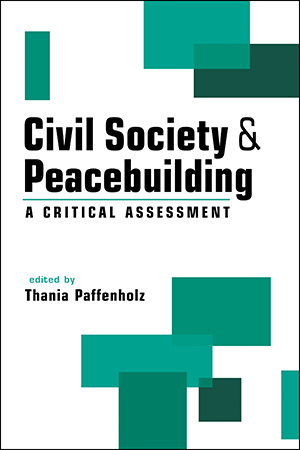Responding to the burgeoning interest in the role of civil society in peace processes, this groundbreaking collaborative effort identifies the constructive functions of civil society in support of peacebuilding both during and in the aftermath of armed conflict. The authors also highlight the factors that support those functions and the obstacles to their fulfillment. A comprehensive analytical framework is applied to 11 country cases, not only allowing comparative analysis, but also providing a new tool for further research.
Thania Paffenholz is lecturer in peace, development, and conflict studies and senior researcher at the Centre for Conflict, Development and Peacebuilding at the Graduate Institute of International and Development Studies in Geneva. She is coauthor of Aid for Peace: A Guide to Planning and Evaluation for Conflict Zones and coeditor of Peacebuilding: A Field Guide.
No rights in South Asia"An invaluable volume for theorists and practitioners engaged in the realm of civil society peacebuilding. The clarity and organization of the book is outstanding and the systematic framework is developed for comparative analyses within different social environments."—Patrick T. Hiller, Peace Review
"This well organized, conceptually and empirically informed collection ... is a benchmark in the peacebuilding debate."—Jenny Pearce, Journal of Peace, Conflict & Development
"Breaks new ground in analyzing the role of civil society in peacebuilding."—Korey Dyck, International Journal on World Peace
"Extremely comprehensive and ground-breaking in many respects."—Véronique Dudouet, Die Friedens-Warte
"A major book.... The first systematic, realistic assessment of the role of civil society in peace processes."—John Darby, University of Notre Dame
"This important contribution brings a theoretically informed and comparative analysis to the role of civil society in peacebuilding."—Nêcla Tschirgi, University of Ottawa
"The great strength of this well-structured and timely contribution lies in the connection of solid empirical findings with theoretical concepts."—Siegmar Schmidt, University of Landau








